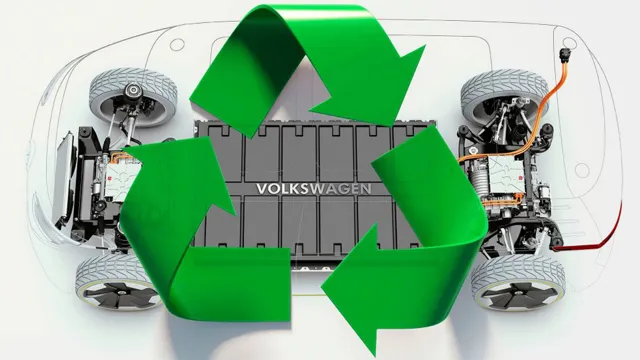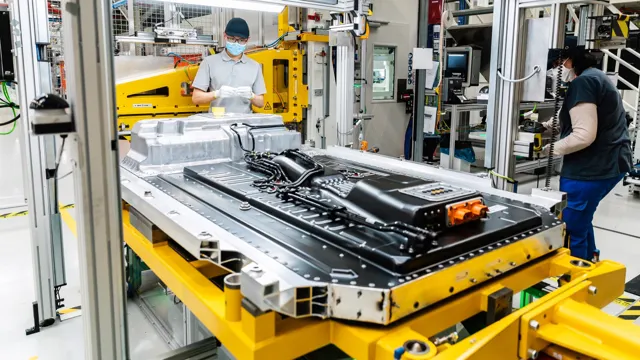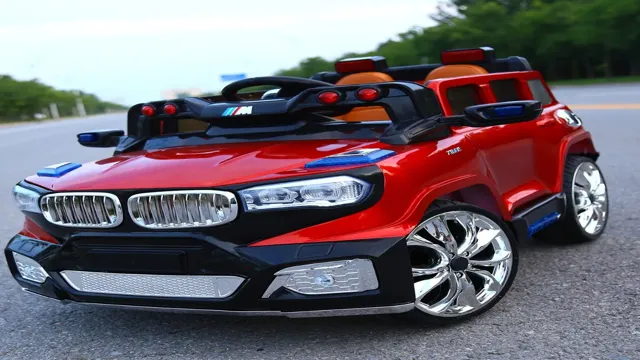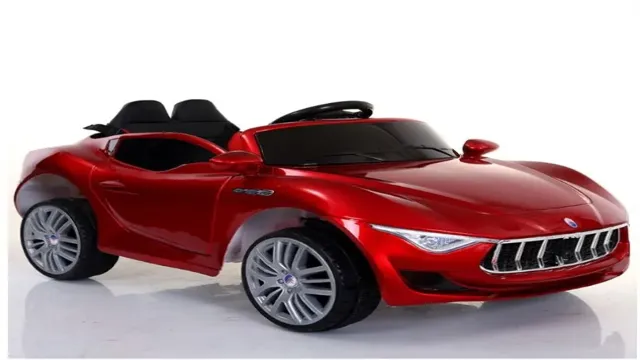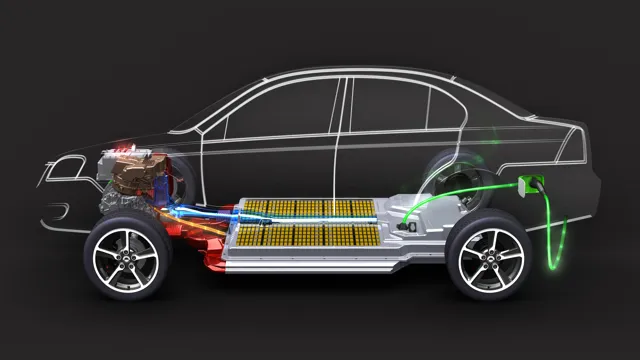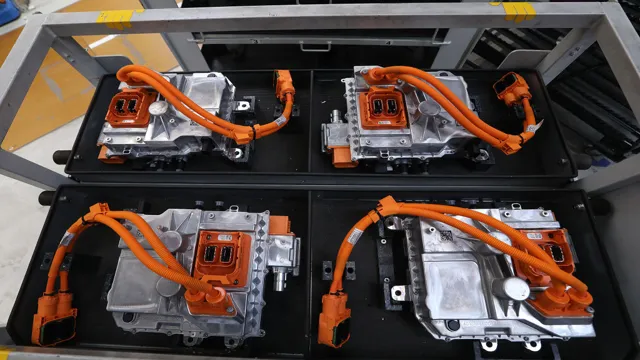Revolutionizing Sustainability: Exploring the Power of Lithium Battery Recycling for Electric Cars
Electric cars are a rising trend in today’s era of environmental consciousness, and for good reason. These vehicles consume less energy and are significantly more sustainable than traditional gas-fueled automobiles. However, as with any product, there is a downside to electric cars.
When these cars reach the end of their life cycle, their most important component, the lithium battery, poses an environmental threat. Improper disposal and handling of these batteries can lead to pollution and long-term damage to the environment. This is where electric car lithium batteries recycling comes in.
In this blog post, we’ll cover the FAQs and facts of electric car lithium batteries recycling, so you can understand why it is important, how it works, and what you can do to contribute to this crucial process.
Basics of Lithium Batteries
As the world transitions towards more electric vehicles, one of the biggest concerns is the sustainability of the lithium batteries used to power them. While lithium batteries are incredibly efficient and last a long time, they do eventually reach the end of their useful life. However, the good news is that electric car lithium batteries can be recycled and repurposed for other uses.
The process involves breaking down the battery into its various components such as cathodes, anodes, and electrolytes and then using them to create new batteries or other types of energy storage systems. This not only reduces the amount of e-waste in the world but also provides a sustainable solution for the growing demand for energy storage. So, while lithium batteries may not last forever, they can be given a new life through recycling and play an important role in the future of sustainable energy.
What are lithium batteries and how do they work?
Lithium batteries are a type of rechargeable battery that use lithium metal or lithium compounds as their cathode and electrolyte. Being one of the most popular rechargeable batteries in use today, they are widely used in a plethora of devices due to their outstanding energy density and high discharge rate. The basic principle behind the functioning of these batteries is simple.
When the battery is in use, lithium ions move from the negative electrode (the anode) towards the positive electrode (the cathode), which results in the flow of electric current through the device. When the battery is being charged, this process is reversed, and the lithium ions move back from the cathode to the anode. These batteries offer numerous advantages, including their lightweight and compact size, making them the ideal choice for portable devices.
Hence, they are employed in various applications, from cell phones and laptops to electric cars and power tools.
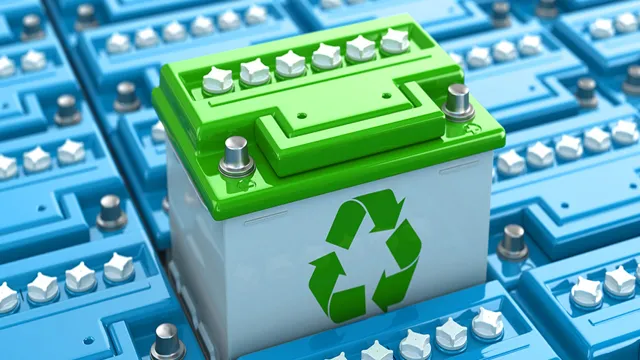
Why are they used in electric cars?
One of the most important components of an electric car is its battery. Lithium batteries are commonly used in electric cars because they have a high energy density, which means they can store a lot of energy in a small space. This allows them to power an electric car for longer distances than other types of batteries.
Additionally, they have a low self-discharge rate, which means they can hold their charge for longer periods of time without losing power. Lithium batteries are also lightweight and have a long lifespan, making them a popular choice for electric car manufacturers. The use of lithium batteries in electric cars is not only practical but also environmentally conscious since they are rechargeable and produce minimal pollution.
Can Electric Car Lithium Batteries Be Recycled?
As electric cars continue to gain popularity as a more eco-friendly option for transportation, the question arises about what to do with the lithium batteries once they reach the end of their lifespan. Luckily, the answer is yes – electric car lithium batteries can be recycled! In fact, recycling programs have been established in many parts of the world to responsibly dispose of these batteries. The recycling process involves breaking down the batteries into their component parts and separating the valuable materials like lithium, cobalt, nickel, and copper.
These materials can then be repurposed for use in new batteries, reducing the need for new mining and conserving valuable resources. Not only does recycling electric car batteries have environmental benefits, but it also has economic benefits in creating a sustainable supply chain for the materials needed to produce new batteries. So, the next time you’re considering purchasing an electric car, rest assured that there is a responsible solution for the batteries.
Yes, They Can!
Yes, electric car lithium batteries can be recycled! In fact, recycling lithium batteries is not only possible but also necessary for a sustainable future. Lithium is a valuable resource with limited global reserves, so recycling ensures that this resource can be reused and conserved. The process of recycling lithium batteries involves breaking down the battery’s components, separating the lithium from other materials, and then purifying the lithium for reuse.
This not only benefits the environment by reducing waste, but also provides a reliable source of raw materials for producing new batteries. So, the next time you’re contemplating purchasing an electric car, remember that the lithium battery can and will be recycled, making it a more sustainable and responsible choice for both your wallet and the environment.
How Is the Recycling Process Conducted?
Recycling electric car lithium batteries is critical for reducing the environmental impact of the automotive industry. The recycling process involves several steps, including dismantling, crushing, and sorting the materials. Lithium-ion batteries contain valuable metals such as lithium, cobalt, and nickel that can be extracted and repurposed for new battery production.
Turning batteries into raw materials reduces the need for mining, which is beneficial to the environment. Although recycling electric car lithium batteries is challenging due to the dangerous chemicals they contain, companies are creating innovative solutions to reduce the risk. With proper recycling techniques, electric car batteries can live on and continue to reduce carbon emissions.
So, the answer is yes! Electric car lithium batteries can be recycled and contribute to a more sustainable future.
Advantages of Lithium Battery Recycling
Lithium battery recycling offers numerous advantages that benefit not only the environment but also the economy. Electric car lithium batteries are among the most sought-after materials in the recycling industry due to their high value and scarcity, making them a prime candidate for recycling. The recycling process allows for the recovery of valuable metals such as cobalt and lithium, which can be reused to produce new batteries, reducing the demand for virgin materials.
Additionally, recycling batteries reduces the amount of waste that ends up in landfills, preventing toxic chemicals from leaching into the soil and water supply. Moreover, recycling lithium batteries creates new job opportunities in the recycling industry, boosting the economy and promoting sustainable waste management practices. In conclusion, recycling electric car lithium batteries is not only possible, but it also offers significant advantages that benefit both the environment and the economy.
Problems with Lithium Battery Recycling
The question of whether electric car lithium batteries can be recycled has been a topic of debate for many years. While it is possible to recycle these batteries, the process is not without its challenges. One of the main issues with lithium battery recycling is that it can be expensive and energy-intensive.
This is because lithium-ion batteries are complex and contain many different materials that need to be separated and processed. Additionally, many recycling facilities are not equipped to handle lithium batteries on a large scale, so there is a lack of infrastructure for proper recycling. Furthermore, even if the batteries are recycled, there is a possibility of some materials being lost or degraded, which can impact the overall sustainability of the process.
Despite these challenges, advancements in technology and increased demand for sustainable solutions are paving the way for more effective lithium battery recycling methods.
Environmental Impact
When it comes to the environmental impact of lithium batteries, recycling is often seen as the solution. However, there are several problems with lithium battery recycling, including the hazardous chemicals involved in the process and the limited availability of recycling facilities. Most lithium batteries end up in landfills, where they can potentially leak toxic chemicals into the soil and water.
Even when recycled, the process requires a significant amount of energy and resources, which can further contribute to carbon emissions and other environmental issues. So while lithium battery recycling is a step in the right direction, more sustainable and eco-friendly alternatives are needed to truly address the environmental impact of these batteries.
Logistical & Technical Challenges
Recycling lithium batteries comes with a unique set of logistical and technical challenges. These batteries contain valuable and rare metals and minerals, and the process of reclaiming them is complicated. One of the major issues with lithium battery recycling is the risk of fire, explosion, and chemical exposure during the handling of these volatile cells.
Experts must be extremely cautious and use specialized equipment to dismantle and extract the valuable components safely. Moreover, the transportation of these batteries from consumer disposal sites to recycling facilities poses a significant challenge. It is time-consuming and expensive to move these materials, which are often spread out across a wide geographic region.
Overall, the process of recycling lithium batteries remains complex and costly, as the technology continues to evolve. As the demand for sustainable waste management rises, so too does the importance of ensuring the safe and efficient handling of lithium batteries.
Future of Electric Car Lithium Battery Recycling
The future of electric car lithium battery recycling is a hot topic right now. Many people are wondering if electric car batteries can be recycled. The good news is that they can! However, the process of recycling these batteries is still in its early stages.
Recycling electric car batteries involves collecting the batteries, removing the valuable materials like lithium, cobalt, and nickel, and then reusing those materials to create new batteries. There are a few companies that are starting to focus on electric car battery recycling, and as electric cars become more popular, this industry will continue to grow. It’s important that we invest in the future of this technology, because not only will it help the environment, but it will also create new jobs and help reduce the demand for new materials.
So, the next time you’re wondering what happens to electric car batteries after they die, remember that there is already a solution in the works.
Conclusion
In conclusion, the question of whether electric car lithium batteries can be recycled is not a black and white answer. While the technology to recycle these batteries exists, there are still many obstacles to overcome in making it a viable and cost-effective solution. Ultimately, it will require a combination of innovation, investment, and a commitment to sustainability to ensure that these batteries do not become another environmental burden.
So, while the prospect of recycling may seem electrifying, it’s important to acknowledge the challenges and opportunities that still lie ahead in creating a truly sustainable future for electric cars.”
FAQs
Why should lithium batteries from electric cars be recycled?
Recycling lithium batteries from electric cars helps to reduce waste and prevent environmental pollution. Additionally, it recovers valuable materials like cobalt, nickel, and lithium, which can be used to produce new batteries.
How are electric car lithium batteries recycled?
There are various recycling methods for electric car lithium batteries, but most involve disassembly, separation of components, and chemical treatments to recover metals. The recovered metals can then be used to produce new batteries.
Is it cost-effective to recycle lithium batteries from electric cars?
Yes, it is cost-effective to recycle lithium batteries from electric cars because it recovers valuable metals that can be sold on the market. Additionally, it reduces the cost of mining new materials and avoids environmental cleanup costs associated with dumping batteries in landfills.
What happens if electric car lithium batteries are not recycled?
If electric car lithium batteries are not recycled, they can end up in landfills, where they pose a risk of environmental pollution. The toxic chemicals in the batteries can leach into the soil and water, causing harm to plants, animals, and humans. Additionally, valuable metals that could be used to create new batteries would be lost.

